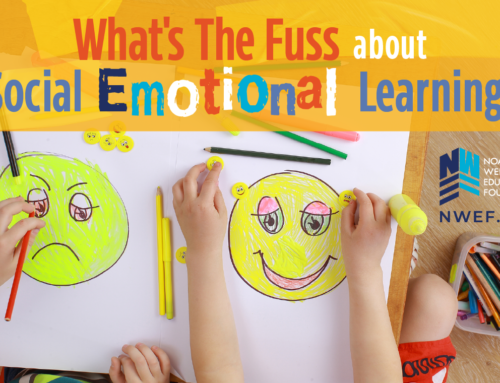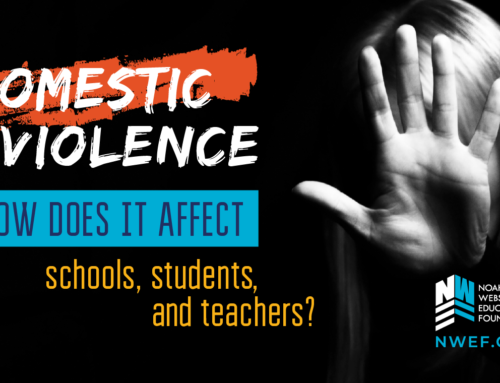
By Guest Writer Jonathan Brush. Revised: 3/12/24
Nobody cares about your child’s GPA, and you shouldn’t either. Everything you’re worried about when it comes to educating your children is misguided and a waste of time.
Did I get your attention? Annoy you a little? Good, stick with me. There’s more.
After a quarter century of working professionally in the “higher” education world while simultaneously being part of the education underground (I was homeschooled and homeschool my children), I can talk as an insider with an outsider perspective. Mostly what I want to tell you as a parent is to stop worrying about the wrong things.
As the President and CEO of Unbound, a project-based education company, I get to speak and present all over the country and talk to thousands of parents. Here’s what they are constantly worried about:
- Academic results. GPAs, grades, test scores, SAT scores, etc.
- Getting into a “good college.”
- Choosing a college major that will lead to a great career.
- Finding that perfect mix of academic quality, extracurricular activities, and “leadership opportunities” that will lead to “success.”
Stop. Stop all of that. Get off the crazy train, take a deep breath, and let’s talk about some very basic principles.
Everything about modern education is about preparing our children to “be successful.” Have you ever stopped and asked what the definition of success is? If you look around, every school, college, and education professional is happy to tell you what they think the definition should be. “Successful” people are wealthy, famous, or powerful (and ideally all three) so that they can change the world!
Consider that for a moment. Do you believe that? In your life, in your experience, in all that you have learned, have you reached the conclusion that the best way to lead a rich, rewarding, and meaningful life is to be wealthy, famous, or powerful?
Yes? Then stop reading this article. I’m wasting your time.
No? Me neither. In fact, pretty much everywhere I look I see the opposite. It seems to me that rich, famous, powerful people who think success is defined by being rich, famous, or powerful have pretty big problems and an oversized portion of misery.
Should you avoid being wealthy, well known, and influential? Definitely not! However, you should avoid making the achievement of those things the definition of your success. And you should avoid getting stressed out by trying to conform and adapt to an educational system that thinks those things are the definition of success.
The allure of the modern education system is that it offers such an easy way to keep score. A student (and the student’s parents) can easily determine success against everyone else based on grades, GPA, test results, college admission and scholarships, and, ultimately, degrees and advanced degrees. In this system students with high scores are smart, students with low scores are dumb, and failure is fatal.
This leads to two unfortunate results. First, the scoreboard tends to suck the life and joy out of learning. Second, this way of keeping score is totally irrelevant in the real world (everywhere outside of educational institutions). In the real world you don’t get a simple grade for every project at work. In real life, failure is the best way to learn.
In the real world there are better outcomes to aim for than fame, fortune, and power.
With me so far? Ready to be different? Well, I have good news and I have bad news.
The good news is that I can offer you a framework that will help you think differently about education. The bad news is that all I can offer is the framework. You will have to do the building yourself.
Actually, I think that’s good news too. Every child and family is different. Figuring out the best opportunities for your child is ultimately far more rewarding and interesting than trying to cram your unique kid into the one-size-fits-all box.
First, let’s talk about parenting success. How do you define success as a parent? To quote best-selling author Andy Andrews, “You’re not trying to raise great kids, you’re trying to raise great adults.” The definition of parenting success is transforming children into independent adults that can make a difference in the world. All educational instruction should be focused on achieving that end.
At Unbound, all of our educational efforts have to fit into the ADULT framework for education. The word “adult” reminds us of our ultimate goal: training and equipping students to become contributing adults who will make a difference in the world. As an acronym, ADULT stands for Ask, Do, Understand, Live, and Thrive. These ideas all work together to form a comprehensive educational framework. Let’s look at each one.
Ask
Most people think we live in a world where answers are very important.
We don’t.
That was the world we lived in until the very recent past. Answers were so important that our entire education system was based, and is still based, on getting as many answers as possible into students’ heads. People with answers in their head were important because getting answers took time and money. If you didn’t have the answer available, the simplest way to get it was to drive to the library, find a book in the card catalog, use the index in the book to find the information, and then either memorize that information or find a way to file it for later use.
Today, you just pull out your phone and ask for the answer.
This changes everything.
For the time we live in, it is far more important to ask good questions than to know answers. Does that mean education doesn’t matter? Far from it. You have to have knowledge and context to be able to ask great questions. However, It does mean that measuring how many correct answers a student can regurgitate onto a standardized test is a very poor way to measure that student’s future success in today’s world.
The best way to academically prepare students to become successful adults is to nurture curiosity, teach them to love to learn, and train them to ask great questions.
Do
When it comes to business, yesterday’s world was a slower-paced world of deliberation and planning. Today’s world is one of iterative decision making: launch fast and adjust as needed.
In the past, mistakes were costly and perfection was preferred. Our educational system was built for that past.
Today, most businesses use an iterative decision making process, launching a product or service quickly and then correcting problems and mistakes based on customer feedback. Instead of perfection the goal is to fail fast and fail forward because perfection is too costly for reality. Let me expound.
Effective education today focuses on action and learning by doing. That means doing real things with a real chance of real failure that will come with real loss. A college football coach I worked with for many years frequently noted that it was fun to coach from a win, but everyone learned more and learned faster when he coached from a loss. If you want your child to be a successful adult, put them in places where they can fail and learn.
Understand
We talked before about asking great questions, but what specifically should we be asking questions about? Most importantly, we should be training our students to ask the big questions:
- Who am I?
- Why am I here?
- What is my purpose and meaning?
- What happens to me when I die?
Everyone asks and answers these questions. Everyone. No exceptions. The problem is that most people ask and answer them subconsciously. Every action a person takes is determined by how they are answering these questions, even if they aren’t consciously aware of asking them.
One of your primary educational goals as a parent should be to challenge, teach, train, and equip your children to consciously ask and answer these big questions.
Live
To live well requires an understanding of reality.
We live in an interesting time where many people refuse to pay attention to reality. The result is a general population that has almost no resilience. That’s unfortunate because reality is still, well, real. It also means that you can give your student an enormous advantage by simply equipping them for reality.
Here are some basic truths about reality that are often forgotten by our culture:
- Bad things will happen to you. That’s hard, but those bad things will teach you, make you stronger, and will make the good times and blessings sweeter.
- Your feelings aren’t reality. The highest expression of being human is to make your feelings subservient to your will.
- There is good and evil in the world, and they are intertwined in every human heart. Celebrate the good and oppose evil, but understand that in this world you never get the luxury of fighting orcs (people who are irredeemably evil). People can and will do evil things, but no person is beyond redemption.
Educated adults need to know how to live, and that requires being able to understand and deal with reality. And if you want to live well, you will have the desire to make an impact on reality.
Everyone wants to make a difference in the world. The current educational system tells young people they need to be rich, famous, or powerful to make a difference in the world. Young people grow into older people and quickly discover that it is extremely difficult to become rich, famous, or powerful. Their optimism fades to cynicism, cynicism changes to bitterness, and bitterness falls into despair.
The truth is that changing the world is not limited to the rich, famous, and powerful. Everyone can change the world. You change the world by being extraordinary at ordinary things, by committing to excellence every day in every little thing that you have the opportunity to do. In most cases, continual commitment to being extraordinary in ordinary things leads to extraordinary opportunities and responsibilities becoming ordinary.
Thrive
What is education really for? What is success? An education should prepare and equip children to become independent adults who can make a difference in the world—adults who not only live, but thrive.
In Unbound we claim that thriving requires two things.
First, thriving requires rest. Education should prepare, equip, and train a person in a manner that allows that person to rest. Rest should be relaxing, but the purpose of rest is not relaxation. The purpose of rest is perspective. Someone who can’t rest is someone who thinks he or she is essential and irreplaceable. Ultimately, that’s someone who begins to believe that he or she is God. Rest restores perspective and acknowledges reality.
Second, thriving means understanding that everything matters in the context of relationships: first and most importantly a relationship with the One who made you, and secondly relationships with other people. Ask, Do, Understand, Live, Thrive only makes sense in the context of relationships.
Parents, stop worrying about things that don’t make a difference. ADULT is a framework that reminds you of the essentials. Your child doesn’t have to be an academically perfect student with all of the right scores to be a successful adult. No matter who you are and whatever your background as a parent, you can teach and equip your child to:
- Love to learn and to ask good questions.
- Take action and learn from failure.
- Consciously ask and answer the big questions.
- Understand and be equipped to deal with reality.
- Commit to being excellent in ordinary things.
- Create habits of rest that restore perspective.
- Define success through the lens of relationships.
If you teach your child those things, you will have raised a successful, independent adult who will make a real difference in the world.
Don’t worry about the rest.
About the Author:
A first generation homeschool graduate, the President and CEO of Unbound, and homeschool dad of six, Jonathan has spoken for over a decade to parents, students, and groups across the country about effectively preparing young adults for life, the excitement and adventure of raising a family, maximizing higher education options, and how to be extraordinary at ordinary things. With a fresh, enthusiastic speaking approach, he consistently provides new perspective, practical advice, and honest hope to audiences of varied ages and backgrounds. Jonathan worked for nine years as a Director of Admissions for a private liberal arts college and has since worked in non-traditional higher education for over a decade. Jonathan and his family make their home in the Shenandoah Valley of Virginia.




